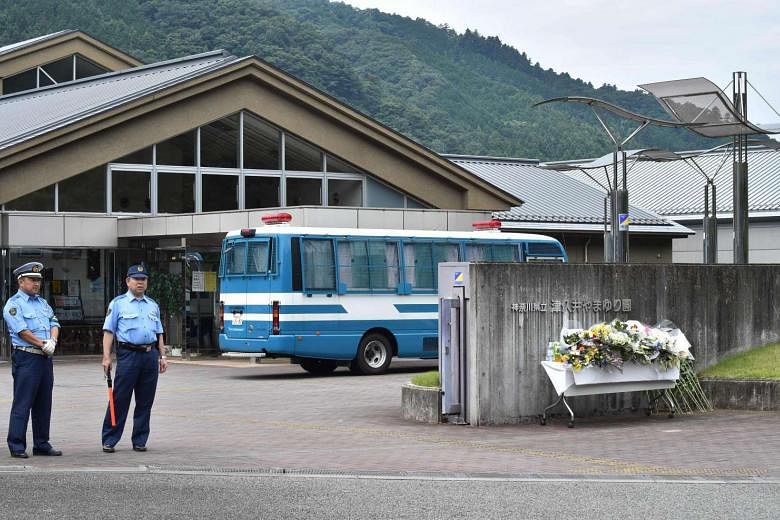The recurrence of such a gruesome incident must be prevented by investigating and bringing to light its background.
Following an attack in which residents and others at a welfare facility for intellectually disabled people in Sagamihara, Kanagawa Prefecture, were killed or injured, a panel of experts for the Health, Labor and Welfare Ministry has held its first meeting.
By examining the incident in which 19 people were killed, the panel will come up with countermeasures sometime in the autumn.
During a meeting of relevant ministers at the end of July, Prime Minister Shinzo Abe instructed the ministers to immediately consider how to follow up on mentally disabled patients after involuntary hospitalisation, including a review of the present follow-up system.
This aspect will be the key in working out measures to prevent such incidents from occurring again.
The city government of Sagamihara in February had committed the former employee of the facility who was arrested in the case to a mental hospital under the Mental Health and Welfare Law, on the grounds that he "posed a danger to himself or other people." About two weeks later, however, the city discharged him from the hospital.
Following his discharge, the man was given no further treatment, because there are no legal provisions for the municipal government to order such treatment.
The city has a system to provide consultation after discharge from a hospital for residents in the city who request it.
But the man, who was living alone in the city, submitted to the city government a false notification that he intended to live with his parents outside the city, meaning he was not covered by the post-discharge consultation system.
Could it be said the discontinued treatment of the man and the failure of authorities to keep an eye on him may have been among the causes of the recent incident?
A lack of cooperation among related organisations also became apparent. In urinalysis at the time of his involuntary hospitalisation, the man tested positive for cannabis.
But the city government did not report this to the police, on the grounds that it had "no obligation to report."
Nor did the city report to the police the fact that the man had been discharged from the hospital, on the grounds that it was personal information.
Because of his extreme words and deeds and the letter that he had taken to the official residence of the speaker of the House of Representatives just before his hospitalization - a letter which could be considered a threat to commit a crime - his criminal propensity was obvious.
By cooperating with the police, it might have been possible to prevent the incident.
Hyogo Prefecture set up follow-up teams at its public health centers for people who are discharged after being involuntarily hospitalized in mental hospitals after a man in the prefecture fatally stabbed five people last year.
The man had been discharged after involuntary hospitalisation. The teams share relevant information with the police and hospitals to deal with such patients. Hyogo's efforts can be referred to.
Another questionable point in the latest incident is whether the decision to discharge the man from the hospital was appropriate.
Currently, diagnoses by more than one doctor are required for the involuntary hospitalization of a patient, but it only takes a diagnosis by one doctor for the same patient to be discharged.
Discussions should be held as to whether the current system should be kept as it is.
Following the Sagamihara incident, a group organized by people with intellectual disabilities and their families released a message calling on people to "consider the importance of life of each and everyone with a disability."
It is also questionable that the Kanagawa prefectural police have not disclosed the names of victims in the incident. The information has been withheld in consideration of the feelings of victims' families and because they were residents of a facility for intellectually disabled people.
But won't this response, which would have been different if people without disabilities had been involved, have the opposite effect of reinforcing prejudice against people with disabilities?
***
The Japan News is a member of The Straits Times media partner Asia News Network, an alliance of 21 newspapers.

